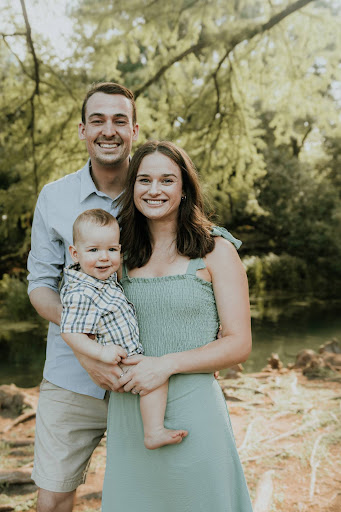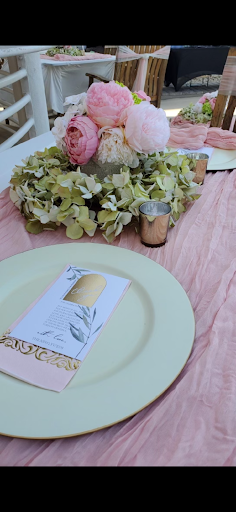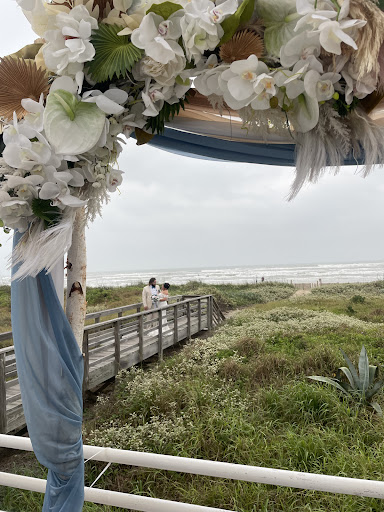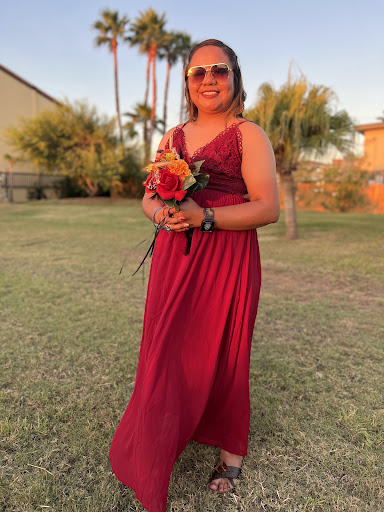Many couples feel overwhelmed when it comes to planning their wedding, but assembling a solid wedding planning team can make the process smoother and more enjoyable. In this guide, you will learn about the key roles you need to fill and where to find the imperative support to bring your vision to life. By understanding what each member can contribute, you’ll be well on your way to coordinating a celebration that reflects your unique style and love story.
Key Takeaways:
- Identify Key Roles: Understanding the different roles needed, such as a wedding planner, coordinator, and vendor manager, can streamline the planning process.
- Delegate Responsibilities: Assign specific tasks to your team members based on their strengths and expertise to ensure an organized approach.
- Utilize Available Resources: Look for support in wedding planning platforms, social media groups, or referrals from friends to build a reliable team.
Understanding the Key Roles in Wedding Planning
The wedding planning process involves various key roles that are necessary to create a seamless event. Each team member has specific responsibilities that contribute to your dream day. By understanding these roles, you can effectively assemble a wedding planning team that complements your vision and helps alleviate stress as you navigate through your planning journey.
The Wedding Planner
While a wedding planner is often the backbone of your planning team, providing guidance and expertise throughout the process. They help you define your vision, manage budgets, and connect you with trusted vendors, ensuring that every detail aligns with your style and preferences.
The Venue Coordinator
Now, the venue coordinator plays a significant role in managing the logistics of your wedding location. They are responsible for coordinating with your vendors and overseeing the setup, ensuring that everything runs smoothly on the big day.
To make the most of your partnership with the venue coordinator, communicate your expectations and preferences clearly. They have in-depth knowledge of the space and can offer valuable insights on layout, timing, and vendor requirements that will ensure your event unfolds flawlessly. Their experience will help you navigate the venue’s specific policies and procedures as well.
The Vendor Team
Vendor teams consist of various professionals, including photographers, caterers, and florists, all working together to bring your vision to life. You can rely on them for their expertise in their respective fields and for creating the enchanting atmosphere you desire.
Understanding the importance of building a reliable vendor team is key to your wedding planning success. Each vendor brings unique skills, so ensuring they communicate effectively with each other and your planning team will enhance the experience. Take the time to research and interview potential vendors, checking reviews and references to guarantee their reliability and compatibility with your vision.
How to Assemble Your Wedding Planning Team
If you’re planning your wedding, assembling the right team is crucial to ensure every detail is attended to. Start by evaluating your needs and preferences, and assess how much time and effort you’re willing to invest. This will guide you in assembling a team that aligns perfectly with your vision and goals, allowing for a smoother and more enjoyable planning process.
Identifying Essential Roles
With so many elements to consider, it’s important to identify crucial roles that will best support your wedding planning journey. Consider hiring a wedding planner to oversee logistics, a florist for your floral arrangements, and a photographer to capture those special moments. Each role contributes uniquely to your overall vision and can help alleviate stress as you navigate the planning process.
Ensuring Compatibility and Vision
Compatibility is key when assembling your wedding planning team, as you want to ensure that everyone shares your vision and understands your aesthetic. This will help create a cohesive experience from start to finish, where each team member can contribute their expertise effectively.
Ensuring compatibility goes beyond just agreeing on aesthetics; it’s about finding team members who communicate well with you and each other. Schedule initial meetings to discuss your vision and style, and pay attention to how they respond and connect with you. Trust your instincts; you want a team that feels like a partnership, capable of bringing your dream wedding to life while making the process enjoyable.
Factors to Consider When Choosing Your Team
Keep in mind several factors when assembling your wedding planning team to ensure smooth collaboration and successful results. Consider the following:
- Your vision and style
- Team dynamics and communication
- Availability and commitment
- Reputation and reviews
Knowing these factors will guide you in selecting a team that aligns with your wedding goals.
Experience and Expertise
Even if you have a clear vision, the experience and expertise of your team members can significantly influence the execution of your plans. Look for professionals who have a proven track record in handling weddings similar to yours, as their insights can help navigate challenges effectively.
Budget Considerations
Team flexibility in working with your budget is necessary for staying on track financially. Recruitment may be influenced by what you can afford for each role, so it is wise to weigh the experience against the costs involved.
Experience can often dictate price points, with seasoned professionals typically charging more for their expertise. As you build your team, prioritize transparency about financial limits from the start. Consider negotiating package deals or seeking services that fit within your budget while providing quality support. This careful balance ensures your wedding vision doesn’t get compromised by financial constraints.
Tips for Finding Support
For effective wedding planning, you should leverage your network and explore various resources. Consider the following strategies:
- Ask friends or family for referrals
- Attend local bridal shows and expos
- Join wedding planning groups on social media
- Consult with recently married friends for their experiences
Assume that your trusted connections can provide valuable insights and recommendations.
Networking for Recommendations
Even if you feel hesitant, reaching out to your social circle can uncover great leads for your wedding planning team. Conversations with friends, family, or even colleagues can yield invaluable recommendations based on their personal experiences. Make sure to attend social gatherings where you might meet vendors or individuals in the wedding industry.
Utilizing Online Resources
Some excellent tools exist online that can assist you in building your team. Websites like wedding forums, review platforms, and social media groups often provide a wealth of information regarding vendors and services available in your area.
Online resources serve as valuable platforms for gathering feedback and reviews from other couples. You can explore sites like The Knot, WeddingWire, or even Pinterest for inspiration and vendor recommendations. Additionally, engaging in themed online communities can open doors to experienced planners and specialists who can offer personalized advice tailored to your needs.
How to Communicate Effectively with Your Team
Unlike many other projects, wedding planning requires a collaborative approach. To ensure everyone is on the same page, clear communication is necessary. You should establish regular channels for updates, decisions, and feedback, which will help streamline the planning process and minimize misunderstandings. Whether it’s through group chats, email threads, or meetings, maintaining open lines of communication will empower your team to work cohesively and support each other.
Setting Clear Expectations
The foundation of effective communication lies in setting clear expectations. Clearly outline each team member’s roles and responsibilities from the start, so everyone understands their contributions to the wedding planning process. This clarity not only fosters accountability but also prevents overlap or confusion, allowing for smoother collaboration.
Regular Check-ins
To keep your planning on track, conduct regular check-ins with your team. These meetings provide an opportunity to discuss progress, address concerns, and adjust plans as necessary.
Team check-ins should be scheduled weekly or bi-weekly, depending on the stage of your planning. Use these meetings to review timelines, share updates, and provide support, creating an atmosphere of collaboration. Encourage everyone to voice their thoughts and concerns, ensuring that issues are addressed promptly. This continuous engagement boosts morale and keeps each member aligned with your vision, ultimately resulting in a more successful wedding planning experience.
Managing Team Dynamics
After assembling your wedding planning team, it’s vital to manage team dynamics effectively. Strong communication and clear expectations can help ensure a harmonious collaboration among your team members. Regular check-ins and updates can foster transparency, allowing everyone to feel included and on the same page. This proactive approach helps mitigate potential issues, ensuring that your team remains focused on the joyous task at hand—planning your perfect wedding.
Encouraging Collaboration
Collaboration is key to a successful wedding planning team. Foster an environment where everyone feels comfortable sharing their ideas and feedback. Organize brainstorming sessions, create group chats, or use collaborative planning tools to enhance communication. Encouraging input from all team members not only strengthens relationships but also leads to more creative and comprehensive solutions for your wedding needs.
Resolving Conflicts
While conflicts may arise among team members due to differing opinions or expectations, addressing them swiftly is vital. Open communication channels should facilitate discussing concerns without personal feelings getting in the way. Acting promptly to mediate disputes ensures that the focus remains on creating your dream wedding.
Encouraging a collaborative atmosphere reduces the likelihood of conflicts but, when they do occur, it’s important to handle them with care. Approach disagreements with an open mind and actively listen to all perspectives involved. Setting clear ground rules for conflict resolution can also streamline discussions and lead to a resolution that respects everyone’s viewpoint, ensuring your team returns to the task of planning with renewed focus and unity.
Conclusion
The process of building your wedding planning team involves identifying key roles and finding the right individuals to fulfill them. As you gather your support system, consider the specific skills and expertise each team member brings to the table. By carefully selecting your planner, vendors, and support network, you can create a seamless experience that reflects your vision and alleviates stress. With the right team in place, you’ll be better equipped to enjoy the journey leading up to your special day.








































